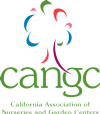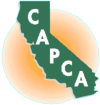SCIENCE TO THE GROWER: How do you put a bee in the plant-buyer's bonnet?
by Richard Evans
Consumers are making a beeline to nurseries and garden centers that sell pollinator-friendly plants and products. Their interest has been piqued by news about declines in bee and butterfly populations and an increasing desire to protect pollinators. Several studies indicate that consumers are willing to spend more to protect bees and butterflies. But how should the nursery industry promote pollinator-friendly products?
Product labels can help a retail customer to differentiate among similar products, and eco-labels have proliferated in recent years because they've been shown to increase customers’ trust and willingness to pay. Despite the existence of over 200 eco-labels in the United States, however, there is no eco-label for pollinator-friendly products. Instead, people in the nursery industry cook up their own promotional materials. But does a proliferation of pollinator-related labels distract or overwhelm the consumer?
A group of researchers recently tackled this issue by investigating consumer responses to labels that extol the pollinator-friendly attributes of ornamental plants (Khachatryan et al. 2017). They studied consumer preference for five attributes: plant type (hibiscus, pentas, and petunia); price (three price points, ranging from those of box stores to those in specialty stores); conventional versus organic production; origin of production (in-state, domestic, or imported); and pollinator friendliness. They also used eye-tracking equipment to find out which product information held consumers' attention.
As one would expect, consumers paid most attention to the plants themselves. Attributes like imported, organic, conventional and domestic attracted moderate attention. Pollinator-friendly labels and high price point received slightly less attention. However, when combined with results from a questionnaire about likelihood of purchasing, researchers found that the pollinator-friendly attribute increased the likelihood of plant purchase. The participants also were more likely to purchase organically-grown plants than conventionally produced plants, and locally- or domestically-grown plants rather than imported ones.
What about touting plants that are grown without use of neonicotinoid insecticides? Rihn and Khachatryan (2016) conducted an on-line consumer survey to assess whether knowledge of pollinator-related issues is correlated with awareness of neonicotinoid insecticides, and whether awareness of these insecticides makes consumers more likely to buy plants labeled “neonicotinoid-free.” Only 24% of survey participants were aware of neonicotinoid insecticides. Members of that group of aware consumers know more about plants that improve pollinator health than people who are unaware of the insecticides. Awareness of neonicotinoid insecticides was associated with a greater likelihood of purchasing “neonic-free” plants, but the “neonic-free” wording was less influential than statements like “butterfly-friendly,” “pollinator-friendly,” or “pollinator-safe.”
None of these results seems strong enough to make a convincing case for the value of a pollinator-friendly eco-label. Of course, if such a label had a huge impact on consumer behavior, we might be overrun by unscrupulous dealers trying to bilk consumers with fraudulent labels. Then regulatory agencies would have to conduct sting operations to seize the swindlers.
Richard Evans is UC Cooperative Extension Environmental Horticulturist, Department of Plant Sciences, UC Davis.
References
Khachatryan H, Rihn AL, Campbell B, Yue C, Hall C, Behe B. 2017.Visual attention to eco-labels predicts consumer preferences for pollinator friendly plants. Sustainability 9, 1743; doi:10.3390/su9101743.
Rihn A, Khachatryan H. 2016. Does consumer awareness of neonicotinoid insecticides influence their preferences for plants? HortScience 51:388-393.












